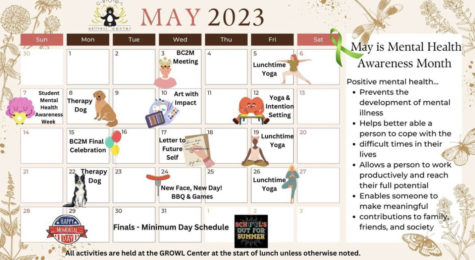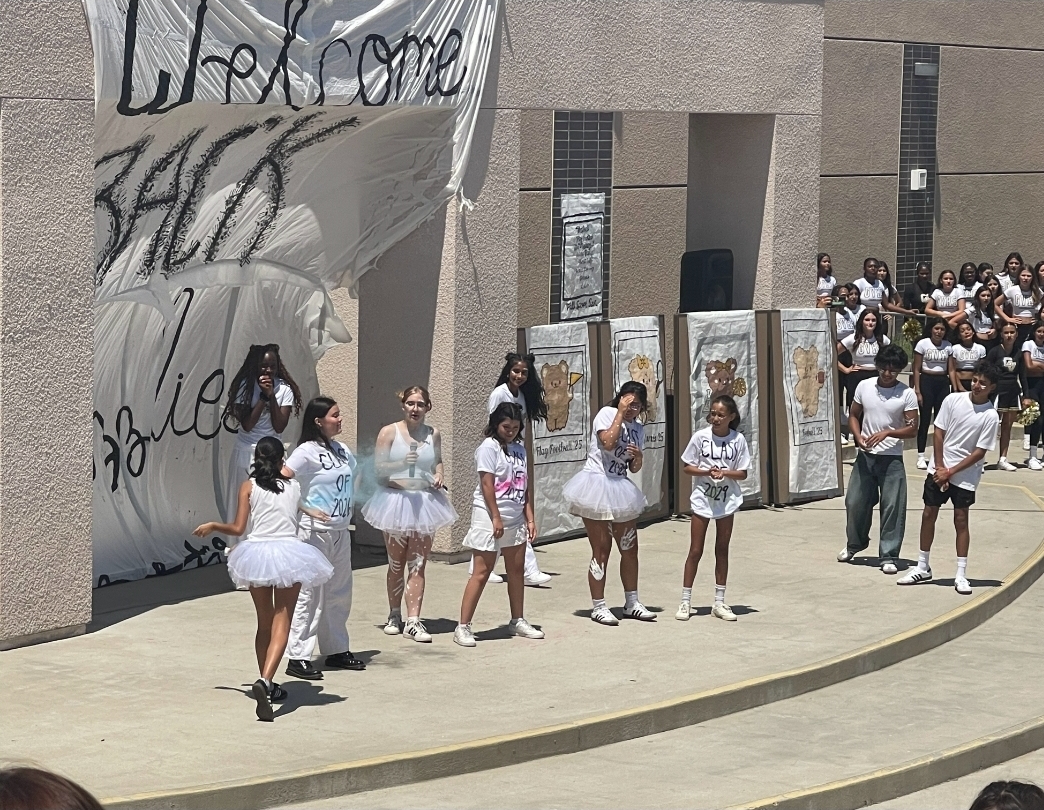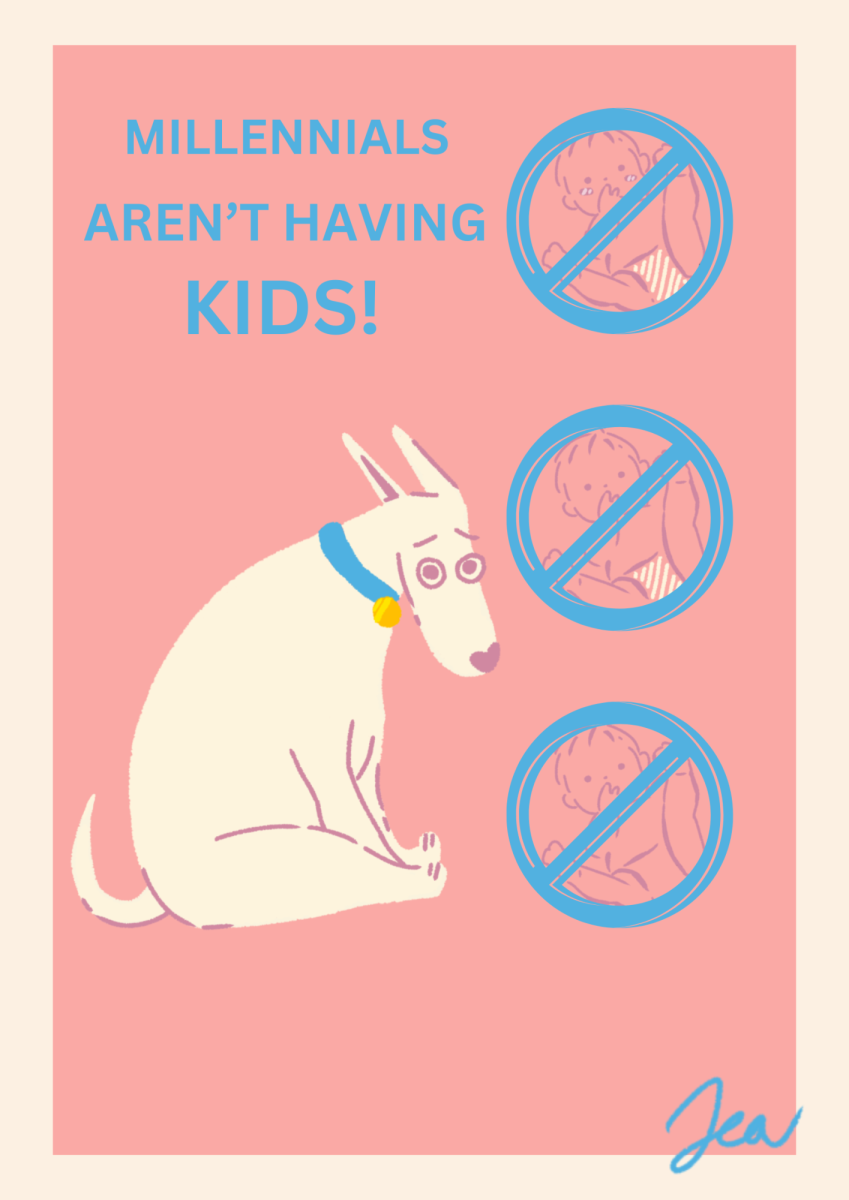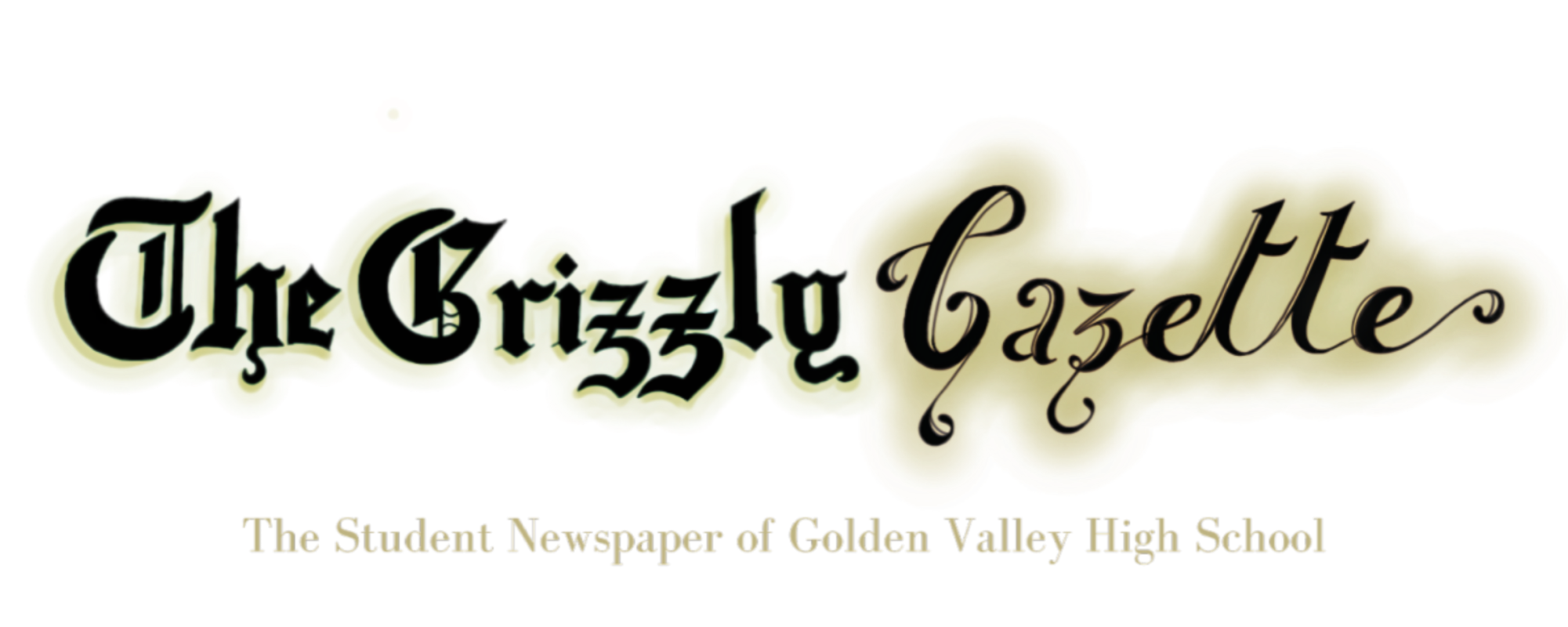How Does Golden Valley Support Students’ Mental Health?
Many times on campus, the importance of mental health is emphasized. The pride Golden Valley takes in assisting students regarding mental health is clearly seen and it is a necessity to analyze. Providing for the student body and observing how well our campus is achieving this is vital to all the students in need of support.
As discussed in the previous ASB election, candidates Lily Ulloa and Dara Falodun advocated for emphasizing mental health to improve the environment in Golden Valley.
Considering this, it should be questioned why that might be a problem that feels the need to be mentioned, and what our campus has to offer for students who have some mental struggles that make it difficult to accelerate academically.
We come to school to challenge our minds and strengthen our knowledge to its full potential, yet, how does a student who deals with challenges throughout their high school experience still meet the expectations that society assigns? Considering the opportunities Golden Valley offers and its efforts in promoting the resources available to them, how well does Golden Valley support their students’ mental health?
Another outlet is, The Bring Change to Mind Club, advised by Ann McCann. They work hard to bring awareness on mental health as well as provide coping skills when school and life, in general, gets hard to handle. The club meets every other Wednesday during lunch in the Growl Center and discusses a wide variety of topics. This includes the hard-hitting topics of gun violence, stresses that follow the anticipation of exams, and tools for school or life in general that get a little too difficult to handle.
Another thing that Golden Valley has to offer is the Growl Center. From therapy dogs, to yoga sessions, the Growl Center is one of the most popular and essential places for students to go when needing a brain break or someone to talk to. There are Peer Counselors during all school hours who are available to talk to students when they’re feeling overwhelmed or generally not at the best place emotionally.

The peer counselors each took a semester-long training course where they learned the skills needed to provide guidance and comfort to students. Interestingly enough, each counselor believed taking the course helped them in their own journey of finding peace in stressful situations. When asked about the effects of being a Peer Counselor on individual mental health, Jaliah Tevoy expressed, “Being a Peer Counselor made me realize what mental struggles I was going through and made me work on those struggles while also helping people at the same time.”
Through the practice of being a person of aid to students, many counselors have seen a lot of improvement in not only their skills but through the people they meet. “The most rewarding thing is seeing students come back, when someone comes in because of something like anxiety or problems with friendships it’s really rewarding to see that they feel confident enough to be with us Peer Counselors and we get to develop a relationship with them more like friend to friend,” explained Senior Peer Counselor Gavin Torrez.
There are help hotlines displayed on the backs of student IDs as well as posters around school in every classroom that describe how and where to get mental help. Not only are there resources that are available every day on campus but other faculty and teachers have taken the initiative by encouraging the importance of a healthy mind for your body.
The physical trainer and sports medicine teacher on campus, Patrick Godines, decided to conduct mental checkups on athletes before, during, and after their season. It was first conducted with the basketball program. Godines organized meetings and scheduled checkups on students to make sure to keep up with the athlete’s mental health to not only show care for the students but also make sure their performance was up to par.
Looking from a broader perspective, the Hart District has sent emails in recognition of May being Mental Health Awareness Month. These emails contain PDFs which include characteristics that may be damaging to a student’s mental health to look out for, coping mechanisms for stress, and outlets to which a student could reach out for help.
Why would some still feel the need to include mental support provided by the school as something that needed to be emphasized or improved? Though some stressors are inevitable, it is questionable how much public schools in general support their students in times of need outside of school.
“There’s a really bad stigma around mental health, no matter what you still have people that think it’s not ok to cry or that their feelings are just exaggerated when in reality it’s ok to feel certain ways and at the end of the day there’s nothing wrong with the way you feel,” explained Peer Counselor Andrew Jimenez.
As already seen, Golden Valley had multiple endeavors to help acknowledge and support students’ mental health to help them perform to the best of their ability. However, a problem arises with participation and advertising.
When Godines was conducting his experiment to see if checking on athletes’ mental health would help them perform better, the study came to a stop towards the end of the season. “One problem that I ran into right away was getting the athletes to participate in the postseason, now I don’t have the complete data which was a difficulty for sure,” expressed Godines
Granted, this was the first year and it may be difficult for students to open up when they are not even sure the check ups will help them without any evidence from past experiments. However, with the knowledge that Godines has, added with many different sources stating that mental health is tied to athletic performance, prioritizing mental health is essential in an athlete’s long-term performance.
Looking at the bigger picture, this problem is minor and should be fixed with more time. The problem of displaying these outlets for everyone, however, may be a little more serious. “The Growl Center is not something you see advertised regularly at school, you don’t hear about mental health much yet you’ll never fail to hear about an event going on at school,” one of the counselors explained.
While this statement may be opinionated in different ways, there are some scenarios where a lack of advertising is present. As an example, the Bring Change to Mind Club discusses significant topics that are not as highly regarded or talked about as other things on campus like GVTV.

There was also an attempt to start a Wellness Wednesday which might help a bunch of students who may be afraid to go to the Growl Center or not informed about it. This was a big step in breaking the taboo of mental health awareness in school. However, it was unfortunately only broadcasted once and frankly did cut into informational minutes of class. “We want to make it a regular thing but the GVTV kids are super busy as is, it’s a matter of schedules,” explained McCann.
So is school-wide discussion on mental health not present much because there is only time in the day when not that many people want to dedicate their time to a mental health session? McCann discusses this explaining that“attendance is low and it’s hard because some people want to just have a fun easy-breezy time and don’t want to spend lunch discussing a heavy topic on mental health.”
McCann also adds that there was a change in advisors right before the COVID-19 pandemic. It has been a struggle to get the club off the ground because of the pandemic and a slow adjustment back to school. There is a lot of hope that the club will grow so it’s only a matter of time before the club fully flourishes.
Nonetheless, it is clear that Golden Valley has many different outlets for a student to go to when needing any type of mental support. Whether students choose to use them or the school choosing to advertise it more is up to them to decide.

Genesis Perez is a Senior with a position as a staff writer for Campus News Team. She is involved in Golden Valley Girls Basketball and CSF. With experience in a leadership role as team captain of her team and being involved in group extracurricular activities like choir, being a writer for the school newspaper was an easy yes.
Though she covers campus news, she has a passion for the arts and is excited to cover events like school plays. A goal of hers is to express her point of view on students and places in Santa Clarita that are involved in the arts and explore the different cultures that are present in Golden Valley.
Being a student journalist this year is very important because this is the foundational year for the paper to really kick off. Being a part of the main structure and setting the culture is really exciting and will definitely be the most rewarding part of being a part of the paper.





















